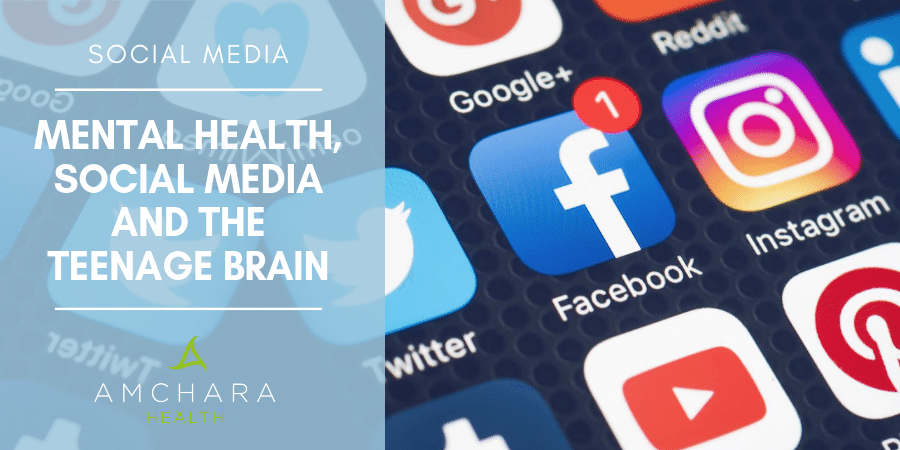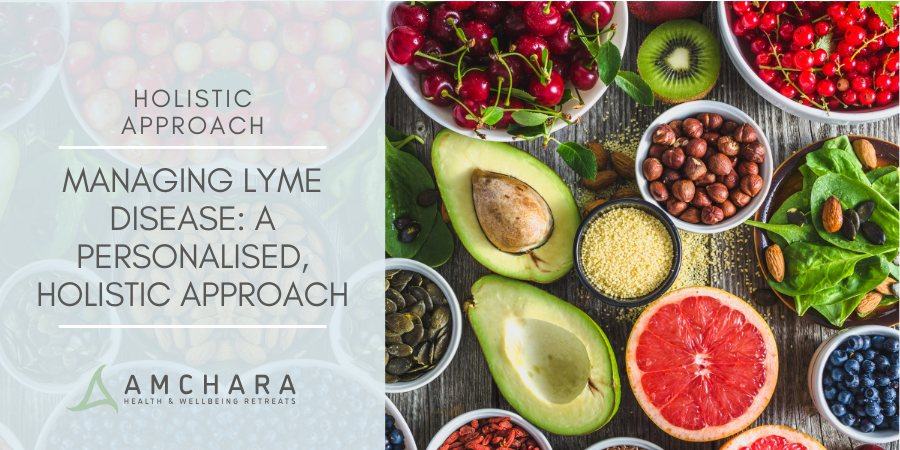Topics Covered in this article:
- Mental Health Prevalence Amongst Young Adults
- Use of Social Media Sites Has Soared in Recent Years
- The Risks for Teenagers Using Social Media
- What is the Solution?
- Social Media Organisations are Taking Action
- Steps You Can Take to Avoid Mental Health Issues in Young People
- Top Tips for Optimal Brain Nutrition
- Supplement Advice
- Take Home Message
Our mission is to provide you with insightful information and evidence-based content to equip you with actionable knowledge and tips you can trust.
In this article we explore what role social media plays in mental health amongst teenagers, what the statistics say, how some social media organisations are reacting to criticism and what can be done to support optimal brain health in order to help bring about positive changes.
Mental Health Prevalence Amongst Young Adults
According to mental health statistics nearly 80,000 young adults suffer from severe depression, and around 1 in every 10 children between the ages of 5 to 16 suffer from a diagnosable mental health condition. (2)
In America a quarter of 13 to 18 year olds suffer from anxiety and in Australia studies show similar problems amongst young adults.
Australian records from 2013-14 report that 13.9% of children and adolescents aged 4 to 17 have experienced a mental disorder. (15)
What’s more this problem is not getting any better; in the UK, the number of 15-16 year olds with depression was shown to have almost doubled since 2009. (14)
Nowadays, social media is the number one form of communication for young adults around the world.
The big question is, do social network sites such as Facebook and Instagram have anything to do with the rising mental health issues amongst the youth of today, or is it just the way a teenage brain is wired mixed in with a number of other physical and social factors?
Teenagers are known for their volatile moods and propensity for extreme emotions, however it’s not just obstinacy or raging hormones that are to blame and scientific evidence can explain some of the reasons behind this behaviour.
An adolescent brain is in transition – during the teen years the part of the brain that controls emotions is fully developed and far more active than in adults.
However, the part of the brain that reigns in these emotions and impulsive reactions is still immature.
This imbalance may explain why adolescents have a tendency to act on impulse, display reckless behaviour and undergo intense moods, giving rise to frequent emotional outbursts.
Use of Social Media Sites Has Soared in Recent Years
Engaging with social media such as Facebook, Instagram, Twitter and MySpace provides young adults with the opportunity to socially interact with friends, classmates and other people with shared interests.
Besides providing endless entertainment, research shows there are benefits to be had.
Social media use is seen to enhance communication and increase technical skills.
However on the negative side, there is a general consensus that social media risks becoming an obsession these days and many teens themselves admit that they are online almost constantly. (5)
Although Facebook was once the place where young people were likely to hang-out, times have changed – the most popular online platforms nowadays for young people are shown to be Snapchat, YouTube and Instagram.
Access to smartphones increases the opportunity for young teens to text, instant message or gain access to social media at any time – day and night.
This is all going on during a crucial period of emotional development for adolescents.
Mental health during the teen years can be fragile.
Many teenagers are fraught with anxiety, prone to temper tantrums and frequently experience feelings of inadequacy, so are social media sites just going to add to these insecurities?
Researchers today are now considering the impact sites like Facebook and Instagram are having on the mental health of young adults.
Following their own investigations, the American Academy of Paediatrics compiled a report suggesting that exposure to social media such as Facebook could lead to depression in children and adolescents.
Their findings prompted one of their leading paediatricians to propose a new phenomenon known as ‘Facebook depression’. (4)
There is however a difference between the sexes. According to the latest findings from the UK Millennium Cohort Study reported in the Lancet, girls are more susceptible than boys to experiencing depressive symptoms linked with social media use. (3)
The Risks for Teenagers Using Social Media
Cyber bullying
This is quite common and can cause severe isolation, anxiety and depression.
Reports suggest that 87% of young people have witnessed cyberbullying and 26% have experienced it themselves. (6)
Privacy Concerns
Sharing too much information and posting inappropriate messages or pictures can jeopardise future employment prospects and make teens an easier target for fraudsters.
Sexting
Exchanging sexual images can lead to emotional distress and contribute to mental health issues if explicit photos turn up in the wrong hands or are distributed widely.
In some cases this may even result in child pornography charges.
Advertising Pressures
Social media sites are prime targets for advertising which can exert a powerful influence on susceptible adolescents.
It can also alter their perception around what is considered normal.
Peer Pressure and Unrealistic Standards
Social media platforms offer a skewed view of real life.
They provide non-stop access to other friends’ popularity, their status up-dates, fabulous images and busy social lives. It increases the pressure to be perfect.
Not measuring up to these unrealistically high standards can decrease self-esteem.
Add to this cyber bullying and sexting, it is perhaps unsurprising that some adolescents, particularly when already prone to anxiety, insecurity and depression, are being negatively impacted by social media.
The worrying likelihood of this has been substantiated by recent research which has identified that daily overuse of media and technology has a negative effect on the health of all children, preteens and teenagers by making them more prone to anxiety, depression and other psychological disorders. (3)
What is the Solution?
Statistical evidence across the world confirms that mental illness amongst young adults is one of the biggest challenges of the 21st century, and is one that needs to be tackled not just by the health services but also by families, communities and the social media industry.
The pros and cons of social media use is a hotly debated topic in the UK and elsewhere around the world.
In the UK the importance of this issue has prompted the British Secretary of State for Health to join other nations in the call for social media organisations to tighten up regulations on use. (3)
The general agreement is that it is essential to carry on creating, building and promoting safe digital use, whilst at the same time insisting that technology firms act responsibly.
Social Media Organisations are Taking Action
Facebook and Instagram appear to be taking heed of the growing body of evidence linking many aspects of social media use and mental health issues.
Recently they both acted quickly to remove images of self-harm from their platforms and it seems Instagram are also currently considering hiding like counts on posts to reduce the sense of competition amongst users.
Doing away with like counts may help to reduce many of the problems teenagers face today, including cyber bullying, anxiety, depression, body comparison and disordered eating.
If all social media platforms made similar changes it might eventually decrease young people’s obsession with social comparison.
Steps You Can Take to Avoid Mental Health Issues in Young People
It is highly unlikely that teenagers would completely stop using social media and as well as this, there are many other factors that play a critical role in the mental health of young people, such as:
- Poverty
- Inequality
- Family struggles
- Unstable housing
- Educational issues
- Racism
If you know someone you have concerns about, whether a friend or family member, the first step is to make them aware of the dangers associated with social media use.
The next step is to encourage them to support their brain health by making healthy nutrition and lifestyle changes.
This can help a young person with a pre-disposition to mental health issues to be less likely to succumb to anxiety or depression.
The teenage brain experiences rapid growth and development, creating an increased demand for energy and nutrients.
There is also a surge in sex hormones that have an effect on brain function.
All these changes make this a time of vulnerability.
A well balanced and varied eating plan is critical for developing a healthy brain and nervous system.
Positive nutritional choices can enhance brain performance and concentration as well as increasing production of the hormones associated with happiness and positivity.
Young adults can have a tendency to eat erratically and their food choices often include highly processed quick snacks.
A teenager’s tendency to skip meals means they risk missing out on vitamins, minerals and carbohydrates.
This leads to low energy levels and can deprive the brain of adequate amounts of the vital nutrients it needs to function optimally.
Top Tips for Optimal Brain Nutrition
Research consistently demonstrates that a diet rich in fruits, vegetables and omega-3 essential fatty acids will benefit the brain.
- Increase fibre rich whole grains and pulses rich in B vitamins and chromium. These foods enhance mental processes and help to balance blood sugar levels. Small, regular fibre rich meals with added protein are ideal.
- Top up with lots of magnesium rich green leafy veggies, nuts and seeds. Magnesium is a vital mineral that plays an important role in the function of the nervous system and aids normal psychological function.
- Eat oily fish, nuts and seeds that are rich in omega-3 essential fatty acids such as walnuts, flaxseeds, salmon, tuna, mackerel, pilchards and sardines. Aim for at least two portions of oily fish a week. Population based research shows that essential fatty acids (EFAs) improve mood, attention, focus and memory. (7)
- Avoid sugar and stimulants like coffee, tea and alcohol. These affect the adrenal glands and may interfere with the assimilation of important nutrients.
- Eat regularly, aiming for three main meals and two healthy snacks a day. Snacks such as nuts, seeds, live natural yoghurt with fresh fruit, boiled eggs and hummus with crudités are ideal choices.
Supplement Advice
Trying to get a teenager to eat healthy balanced nutrition can be very challenging at the best of times, particularly when they are under exam pressure, which is when they especially need a good variety of nutrients.
Supplementation can be a beneficial option, helping to support a sometimes less than perfect diet and demanding lifestyle.
A growing body of evidence points to the benefits of B vitamin supplementation to support the brain and may be all a teen needs for a little added health support.
Research consistently demonstrates that the B complex vitamins play a vital role in brain health. (10) (11)
When you consider the many functions the brain has to perform it’s hardly surprising that a whole range of B vitamins are needed to keep it fuelled.
For any young adult experiencing anxiety or depression, maintaining a healthy, optimistic mood requires a good mix of vitamin B5 (pantothenic acid) vitamin B6 (pyridoxine), vitamin B12 (cobalamin), vitamin B3 (niacin), vitamin B1 (thiamine) and folic acid.
Evidence shows that these particular B vitamins are the key to supporting the nervous system and psychological function.
They are typically found in protein and leafy green vegetables, the type of foods teenagers often don’t instinctively reach for!
Research has identified that adolescents need a good supply of thiamine to help fuel the brain. (9)
This B vitamin is an essential co-factor in the metabolism of carbohydrates, which are converted into glucose – the food our brains like best.
A severe thiamine deficiency can result in mental confusion, poor memory and depression. (8)
Vitamin B12 plays a key role in producing brain chemicals that affect mood.
The health and function of neurotransmitters are dependent on vitamin B12 for its protective effect on the myelin sheath that surrounds the nerves. (12)
Once this protection diminishes, the communication between neurones in the nervous system isn’t as efficient as it should be, which can wreak havoc with delicate mood balance.
Folic acid may also play a part in low mood as studies have found that individuals suffering with depression have low levels of both folate and vitamin B12 in their bodies. (13)
The ideal teenage brain health protocol would include a vitamin B complex, magnesium and a high quality omega-3 supplement.
Regular exercise and establishing a healthy sleep pattern are also of utmost importance for maintaining healthy brain function.
Take Home Message
Making healthy nutritional and lifestyle choices can be of tremendous benefit for the mental health of young adults, but there are also organisations that can help.
‘Be mindful online’ is an online mindfulness course available from the Mental Health Foundation.
Research on this course in 2013 found that out of the 273 people that completed the course, on average around 58% saw a reduction in their anxiety levels.
We believe that sharing knowledge and experience is an important part of achieving optimal health.
Do you have any tips on helping teenagers navigate this time of change?
We would love to hear your views and experiences.
If you are not sure what to feed a teenager with anxiety or depression and need some advice, one of our Amchara Health Practitioners can help.
READ THIS NEXT:




